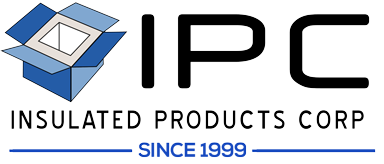What products is your insulation packaging suitable for?
Our range of insulated packaging materials are suitable for the shipment of all temperature-sensitive products. Some of the products and industries we serve include:
Food: meat, poultry, fish, chocolate, ice cream, smoothies, groceries, herbs & plants, meal kits, baby food
Drink: wine, beer, champagne, juices (view our food packaging products)
Pharmaceutical: insulin, IV medicines, blood products, veterinary medicines
Industrial: chemical mixtures, bonding agents, diagnostic reagents
Cleaning & cosmetics: Detergents, shampoo, toothpaste, mouthwash
What are your insulated packaging materials made of?
Our insulated packaging are made of advanced thermal materials, crafted through 19 years or testing, research and development. We provide numerous different insulation materials, each optimized for use in different circumstances.
What forms of payment do you accept?
We provide a range of payment options, including checks, wire payments, and all major credit and debit cards.
Can you provide me with an invoice for my order?
Yes, we can provide a sales invoice on the same day as your order.
Do you charge tax?
Yes, we charge tax as appropriate for state law, and as applicable for the use of the products.
What is your returns policy?
We accept returns for standard-sized products, but custom-made products are non-refundable and cannot be returned.
What’s the best way to ship refrigerated products?
When shipping products that must remain refrigerated during transit, it’s imporant to use effective insulated packaging, such as box liners, pallet covers and insulated pouches, in conjunction with refrigerant gel packs. Take a look at the infographic below for everything you need to know.
We’ve also explained the process in more detail in our How to Ship Refrigerated Products page.
How long do the Refrigerant Gel Packs stay frozen for?
The answer is that GelTech Gel Packs will thaw in accordance with the amount of heat they encounter. The packs are designed to defrost slowly while they gradually absorb heat that surrounds them. Naturally, if there is more heat they will melt faster. So, the factors affecting melting will be:
- Type of insulated packaging the packs are placed in.
- The ambient temperatures the packs + insulation encounter.
- The temperature of adjacent goods (your product).



